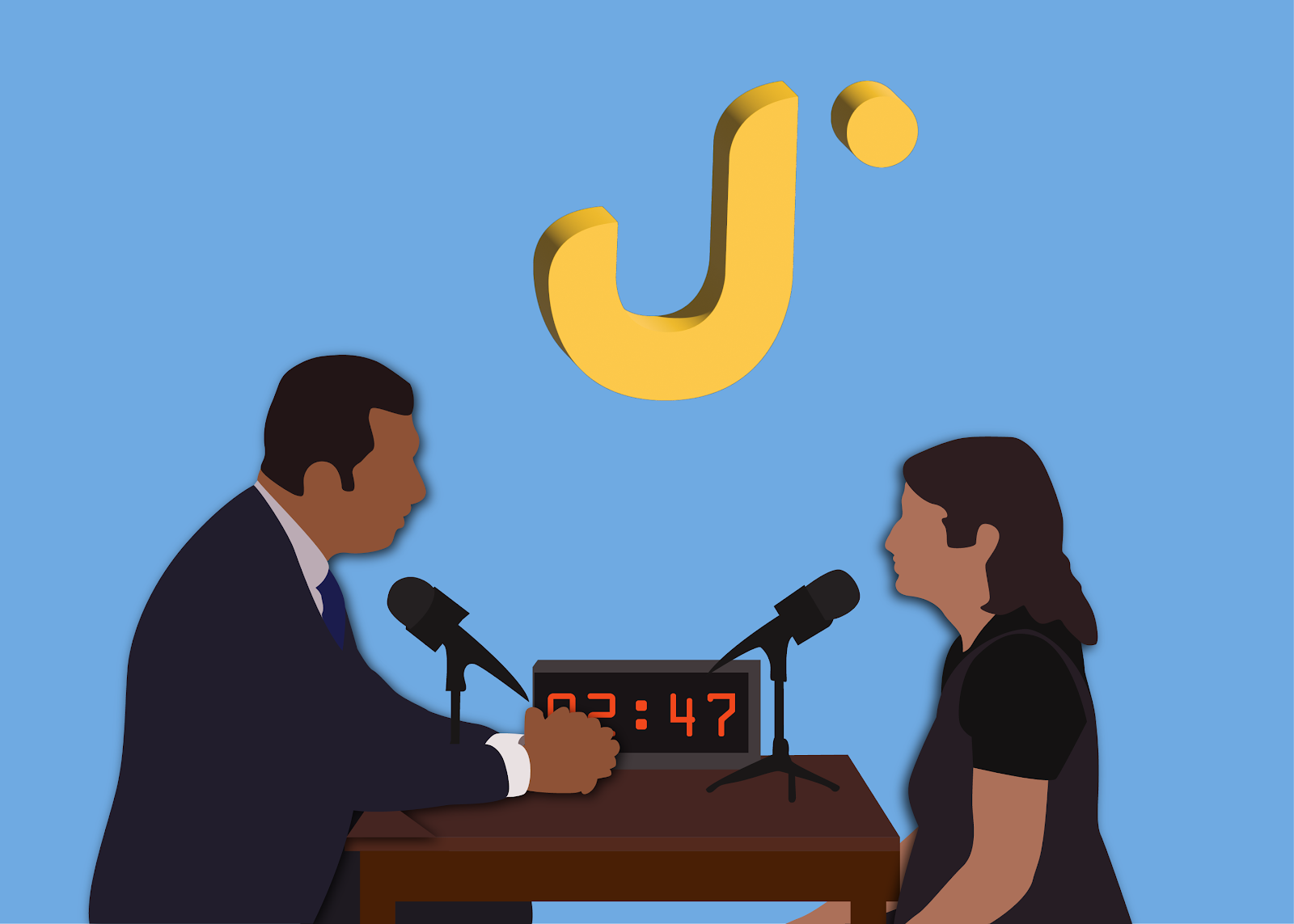Jubilee Media, a Youtube channel founded in 2010 posts social and political videos with the intention of “provok[ing] understanding & creat[ing] human connection,” as read in their byline. The platform’s content began covering political topics during the 2016 U.S. presidential election. They started on a promising note. Founder Jason Y. Lee, disappointed in the growing political polarization in the U.S., set about posting videos on “Middle Ground,” a series where diverse participants fairly and evenly take opposing sides on a political debate stage and sit down to have a civilized, open conversation about varying topics.
Nine years later, the platform has strayed away from its initial 2016 goal, featuring guests who fuel U.S. political polarization online and are seemingly unwilling to understand others and change their minds.
The channel almost regularly features extremist rhetoric, hateful ideologies and unproductive yelling back and forth, which only adds to the ragebait felt by their online audience; the divisiveness extends into the angry comment section and the continued spread of bigotry.
The recent appearance of Connor Estelle, a far-right guest on Jubilee’s “1 Progressive vs 20 Far-Right Conservatives (ft. Mehdi Hasan),” marked a new low. Since the episode aired, Estelle has been exposed for openly sharing his fascist views online. Considering that Jubilee claims to conduct pre-interviews and vet their participants before filming, the Jubilee producers were either extremely negligent by letting someone with spiteful ideologies air on their platform of 10M+ followers, or worse, they did it intentionally to garner more engagement on their channel.
The structure of the Mehdi Hasan episode, sets up an unproductive conversation. Hasan, a professional political commentator, was placed up against 20 far-right individuals; many of which had little to no real debate experience. Not only does this make for a lopsided and chaotic episode, but these 20 individuals immediately feel the need to stand with the argument of their side and team up against the one.
Many guests go into the episodes with what they’re going to say planned and with their beliefs set. These immobile, preconceived notions defeat the purpose of having what Jubilee calls “meaningful” conversations. If the guests are mostly unwilling to change their viewpoints and are just arguing with the opposing side for the sake of making their point and winning the argument, then it is not productive. And even then, the Mehdi Hasan episode isn’t Jubilee’s first slip up. This is one in an array of hundreds of videos that are disguised to combat the political party divide and have those understanding conservations that allow people to “see each other as humans,” but are really just set-up’s with a good thumbnail that will lure viewers in and a triggering preview of some of the most heated moments on the episode.
To be fair, Jubilee began with good intentions and had the right idea in mind when starting to publish these episodes. Dialogue with people of differing viewpoints and ideologies from yours are valuable to have and it’s important to interact with people that we disagree with to find a mutual grounding or compromise that both can agree on, but Jubilee is not helping with that.
Jubilee episodes seem to mirror the set-ups of Dr. Phil, Judge Judy and Jerry Springer, each of which presented themselves as conflict-resolvers with good intentions, but in reality staged performative interactions designed to showcase as much drama as possible. However, unlike those shows, which primarily centered on psychological, legal and social disputes, Jubilee focuses on political issues. For these issues, the stakes go higher because unlike personal or interpersonal disputes, politics directly shape laws, public policy and social norms. Poor framing of political debates can distort public understanding on these issues and influence real-world decisions that affect entire communities. So, when Jubilee misrepresents political topics, the consequences extend far beyond the episode.
And when a show gives a platform to someone who holds fascist, racist or otherwise violent views, and frames them as part of the debate, this suggests a legitimacy of bigotry. It can communicate to young, impressionable viewers that these ideologies are a completely valid, sound side of the debate. This is bound to spread propaganda and misinformation, even with the few fact-checking icons that come up during their episodes.
It’s obvious that Jubilee is more focused on getting the utmost views and engagement from their audiences and aren’t as concerned about allowing extreme ideologies and controversial statements from their guests to air.
When Jubilee claims to “explore the spectrum of human experience,” they must take responsibility for who they are displaying on their page. This means meaningfully casting participants, making sure guests feel safe and refusing to convey extremist rhetoric and hateful ideologies as just other “points of view.” Unfortunately, Jubilee isn’t doing that, knowing full well the consequences.
The longer viewers watch Jubilee’s videos, the more normalized extremism and hate becomes in an already divisive world.
Julia Kremenetsky is an Opinion Staff Writer for the summer 2025 quarter. She can be reached at jkremene@uci.edu.


